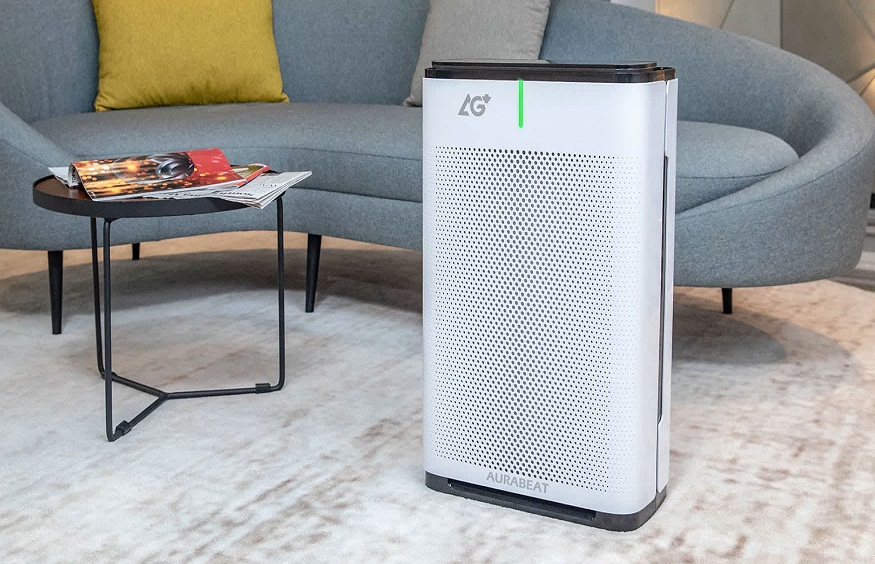Understanding the Benefits of Air Purifiers for Allergy Sufferers
 Allergy sufferers frequently feel uncomfortable because of airborne particles that cause symptoms such as watery eyes, sneezing, and itching. These problems can be made worse by indoor airborne dust, pollen, pet dander, and mould spores. Fortunately, by lowering the amount of these allergens in the air, an air purifier machine can contribute to the creation of a more comfortable atmosphere. Having a thorough understanding of air purifier operation and its benefits for allergy sufferers can help manage allergic reactions in the house.
Allergy sufferers frequently feel uncomfortable because of airborne particles that cause symptoms such as watery eyes, sneezing, and itching. These problems can be made worse by indoor airborne dust, pollen, pet dander, and mould spores. Fortunately, by lowering the amount of these allergens in the air, an air purifier machine can contribute to the creation of a more comfortable atmosphere. Having a thorough understanding of air purifier operation and its benefits for allergy sufferers can help manage allergic reactions in the house.
How Air Purifiers Reduce Allergens
The way an air purifier operates is by drawing in air from a space and filtering it to get rid of dangerous particles. The most popular and efficient filters for removing small particles from the air, including dust mites, pollen, and pet dander, are high-efficiency particulate air (HEPA) filters. Air purifiers work by trapping these allergens and keeping them from entering the air again. For people with seasonal or ongoing allergies, this decrease in airborne allergens can offer much-needed respite, making it more straightforward to enjoy clean air indoors.
Better Air Quality
Individuals who suffer from allergies are frequently more susceptible to the harmful effects of poor air quality, and even little increases in allergen levels can cause symptoms to flare up. An air purifier works continually to remove pollutants from the air that might otherwise build up. Purifiers can be quite helpful in controlling the quality of the air in houses with pets or in places where pollen counts are often high. Allergy patients can benefit from a healthier, less irritating atmosphere with fewer odds of allergic reactions interfering with their daily lives by enhancing the general cleanliness of the air.
Minimising Indoor Irritants and Pollutants
Pollutants found indoors are not limited to allergies. Particularly for people who are already prone to allergies, volatile organic compounds (VOCs) from cleaning chemicals, smoking, and even culinary odours can irritate the respiratory system. These dangerous gases and smells can be eliminated by an air purifier with an activated carbon filter, which will enhance the quality of the air indoors even more. By removing various sorts of pollutants from the air and improving breathing quality, air purifiers provide an additional layer of protection for people who are extremely sensitive to environmental irritants.
Enhancing the Ambience for Better Health
An air purifier can make a person’s home more pleasant and healthy, especially if they have allergies. It is beneficial in bedrooms, where people spend a lot of time and where allergens like dust mites frequently gather. By installing air purifiers in strategic parts of their homes, people can breathe easier and be exposed to fewer allergens. This improves sleep quality and general well-being. Maintaining a home that encourages allergy control can be greatly impacted by this ongoing air filtration.
Long-Term Health Advantages
Beyond only relieving allergy symptoms right once, regular usage of an air purifier can have long-term health advantages. Long-term exposure to allergens and other pollutants can exacerbate pre-existing illnesses like asthma or cause new, chronic respiratory problems. Through the reduction of the total amount of airborne irritants, air purifiers assist in shielding people from prolonged exposure to dangerous particles. This means fewer allergic reactions and a lower chance of long-term development of new respiratory issues for allergy sufferers.
Conclusion
An air purifier can help allergy sufferers manage their symptoms and enhance the quality of the air in their homes. Purifiers make living spaces cleaner and cosier by lowering the amount of allergens, irritants, and pollutants in the air. An air purifier can significantly improve the health of allergy patients, with advantages ranging from short-term alleviation of symptoms to long-term defence against respiratory problems.
